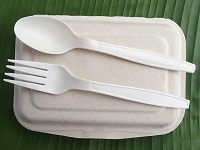Petrochemicals Biodegradable Biobased PET 29-08-2019 - Arhive
Petrochemicals Biodegradable Biobased PET
China – Polyethylene Terephthalate
PET and it’s chain are assessed mixed.
Crude oil price is steady.
Polyamide 6 and its chain are weak.
Acrylonitrile is steady,but ASF is weak.
PET Bottle grade export 810/870 $/ton – PET Bottle grade domestic market 6,700/6,850 yuan/ton – PET Filament grade SD domestic market 6,550/6,700 yuan/ton – PET Filament grade BR domestic market 6,700/6,800 yuan/ton
PTA Taiwan 690/700 $/ton – PTA domestic market 5,100/5,200 yuan/ton – MEG 535/550 $/ton – MEG domestic market 4,500/4,650 yuan/ton – PX Korea 775/790 $/ton
Polyester POY 150D/48F domestic market 7,650/7,750 yuan/ton – Polyester DTY 150D/48F domestic market 9,050/9,150 yuan/ton – Polyester Staple PSF domestic market 7,200/7,350 yuan/ton
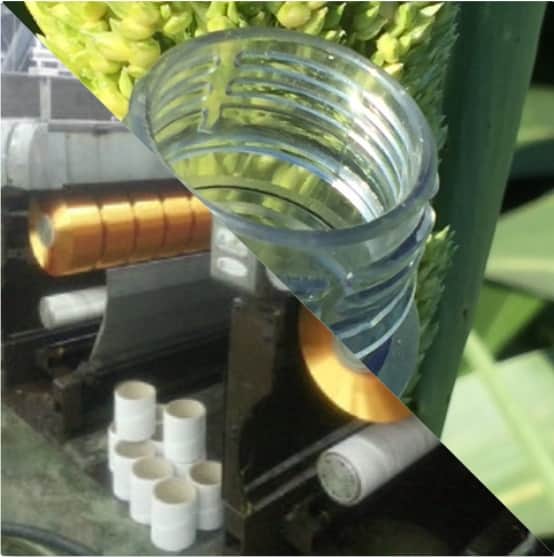
Crude Oil Prices Trend

-The overlooked evolution in biopolymers
The UK is pressing ahead with its ban on single-use plastics, to take effect in April 2020. Yet eight million tonnes of single-use plastics are still produced each year. So, how can the ban overcome this growing reliance? Dr Ashlee Jahnke, director of research at plastic substitute specialist Teysha Technologies, explains why a breakthrough in biopolymers might hold the key.
The shortcomings of alternative biodegradable or compostable plastics are becoming ever more apparent. This is generally because they require certain environmental conditions to biodegrade within a reasonable time.
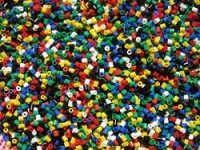
-Overcoming the plastic packaging problem
As the discussion around plastic packaging and climate change continues, Susan Brownlow takes a look at some innovative alternatives and the state of our current recycling processes. Petrochemicals Biodegradable Biobased PET
With Tesco recently pledging to intensify its determination to drastically reduce single-use plastic, including measures that de-list brands using excessive or too much non-recyclable packaging, the discussion around plastic packaging alternatives continues to escalate.
Tesco gave suppliers a list of preferred packaging materials last year which included, not surprisingly, sustainably sourced wood, board and paper, glass and aluminium – but also plastics such as polyethylene (PE), polyethylene terephthalate (PET) and polypropylene (PP).
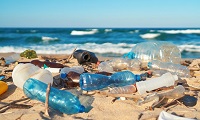
-The Environmental Benefits of Hemp: Hemp Plastics
As governments around the world are increasingly allowing the Cannabis argument onto the agenda, the conversation has become about more than just medical or recreational. The uses of Hemp – the Cannabis plant that doesn’t get you high – have long been neglected.
However, this versatile plant is finally beginning to get the credit it deserves. With uses ranging from construction materials and fuel to biodegradable plastics, Hemp could be a significant player in reducing the world’s carbon emissions.
With an astonishing amount of petroleum-derived plastics being spilled into the oceans and landfills every year, people are increasingly questioning if there could be a better way. Plant bioplastics could offer a more sustainable alternative, and Hemp plastics could be a frontrunner. Petrochemicals Biodegradable Biobased PET

-Catalyst degrades microplastics
A reusable magnetic catalyst can break down microplastics in water…
A team from the University of Adelaide have created a catalyst that can break down the long polymer chains that make up microplastics. The result is small, harmless molecules that can dissolve in water, and the entire process happens within just a few hours. This is in stark contrast to the thousands of years that would normally be needed for plastic to break down.
The key to the new catalyst, developed by Shaobin Wang and his colleagues, is carbon nanotubes. These are very thin sheets of carbon atoms, rolled up into tubes and laced with nitrogen compounds. “When we think about degrading, this is not just cleaving it into smaller pieces, but really degrading the chemical structure,” says Ljiljana Fruk, a chemical engineer from the University of Cambridge, commenting on the results of this paper. Petrochemicals Biodegradable Biobased PET
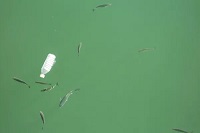
-China PE markets weaken on yuan slump amid US-China trade tensions
China’s domestic polyethylene (PE) prices started to show bearishness amid the slumping yuan and increased appetite for hedging as the US-China trade war escalated.
The Chinese yuan hit a record low versus the US dollar on 26 August 2019. (Photo by Kin Cheung/AP/Shutterstock)
On 27 August, linear low density PE (LLDPE) were at yuan (CNY) 7,200-7,350/tonne, down by CNY125/tonne from the assessment on 23 August, according to ICIS data.
Current import offers for the same grade are at $810-840/tonne CFR (cost & freight) China, lower by $27.50/tonne from the previous week’s assessed prices.
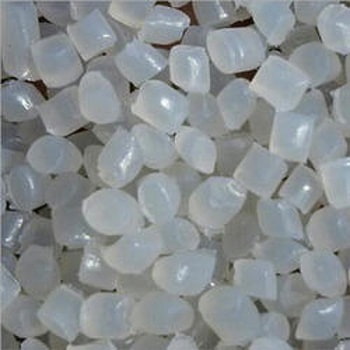
-India’s plastic waste crisis is too big, even for Modi
India generates nearly 26,000 tonnes of plastic waste every day, making it the 15th biggest plastic polluter globally.
Discarded plastic waste litter the country’s roads, rivers and also form huge mounds in garbage dumps across the country. “The rubbish dump I frequent is filled mostly with plastic,” Ram Kumar, a ragpicker in Noida, near New Delhi, told Quartz. “Bottles, containers, and polythene bags are some of the items I routinely gather from here (to sell to recyclers).”
During the monsoon, plastic bottles at the dump accumulate water and are a breeding ground for mosquitoes. Besides the stench, the site poses a major health hazard for the area’s residents, exposing them to the mosquito-borne diseases.
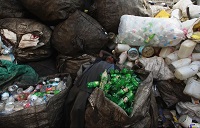
-US PP exports facing logistics delays
US exporters of polypropylene (PP) are experiencing some logistics delays as bagging facilities along the US Gulf are operating at close to full capacity.
Material sold domestically is shipped in bulk railcars, which also service export buyers in the Mexican and Canadian markets.
For exports outside the North American region, material must be sent to the US Gulf Coast to be packaged and bagged. Export cargoes are typically sold in 25kg bags packed onto container ships. Petrochemicals Biodegradable Biobased PET
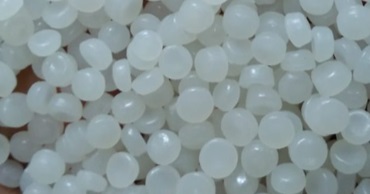
-Fashion and environment, here are the alternative models between listed and unlisted companies ( Italian Language Only)
Every year we spend 500 billion dollars (something like 450 billion euros) for clothes rarely worn and recycled. In recent years, the preference for frequent purchases of inexpensive garments in an attempt to keep up with the latest fashion trends has established itself, even with the spread of online shopping. However, this behavior causes enormous environmental damage. Synthetic materials, which lose millions of microfibres during washing, contaminating water flows like 50 billion plastic bottles. Not to mention 8% of greenhouse gas emissions and the 92 million tons of waste that the clothing and footwear industry generates globally each year. This is what emerges from the study conducted by Decalia in an editorial entitled “Fashion Victims”. However, alternative business models are being developed, which are gaining interest along the entire fashion chain. Among the protagonists of this change, also some listed companies.

-GCC PE may track weak Asia market amid US-China trade war
Polyethylene (PE) markets in the Gulf Cooperation Council (GCC) region are being weighed down by continued weakness in Asia amid recent escalation in the US-China trade tensions.
Khor Fakkan port in Dubai, UAE (Photo by Deedee Degelia Brent Winebrenner Degelia/Mood Board/Shutterstock)
Despite initial expectations of a seasonal uptick to emerge after the summer lull in July and August, resin importers in the GCC remain bearish on demand improving in the near-term even as they await offers for September shipments.
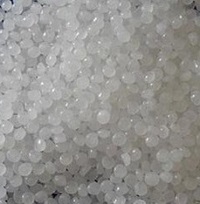
-Turkmenistan privatizes textile industry
Two public joint-stock companies (PJSC) in the textile sector will be formed in Turkmenistan, Trend reports referring to the Turkmen Textile Industry Ministry.
These include the textile complex located in Gypchak and the enterprise for the processing of cotton waste located in Buzmeyin (both in Turkmenistan’s Ahal Region).
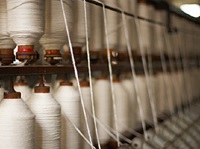
-Are bioplastics really better for the environment? Read the fine print
Have you ever stood in front of a supermarket shelf and wondered if you should buy that product made from bioplastics rather than the conventional kind? Many people assume all bioplastics are made from plants and can break down completely in the environment. But that’s not the case.
The term “bioplastics” is actually used for two things: bio-based plastics (plastics made at least partly from biological matter) and biodegradable plastics (plastics that can be completely broken down by microbes in a reasonable timeframe, given specific conditions). Not all bio-based plastics are biodegradable, and not all biodegradable plastics are bio-based. And even biodegradable plastics might not biodegrade in every environment. Sounds confusing? It certainly is.
